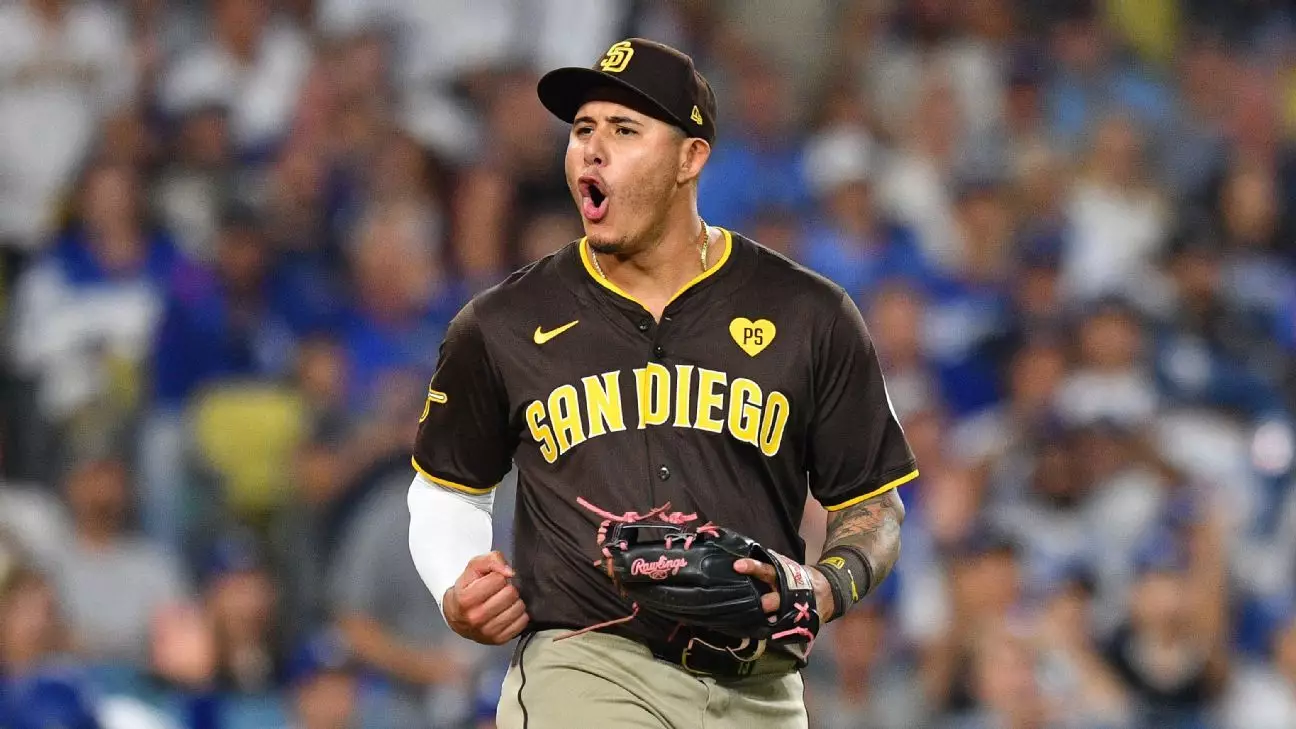In the wake of critical remarks made by Los Angeles Dodgers’ manager Dave Roberts regarding Manny Machado’s actions during Game 2 of the National League Division Series, San Diego Padres’ manager Mike Shildt stood firmly by his player. Roberts labeled Machado’s throw towards the Dodgers’ dugout as “unsettling,” but Shildt reacted not only by defending Machado but also by emphasizing the essential qualities of professionalism and leadership that the third baseman embodies. Shildt’s defense is one of highlighting character over controversy, marking a pivotal moment in the understanding of interpersonal dynamics in professional sports.
Shildt articulated a fundamental principle that seems to underlie the ethos of the Padres: respect for fellow players and teams. His comments illustrate a clear preference for fostering unity rather than divisiveness. By choosing not to “disparage another player,” Shildt cultivates a culture based on mutual respect, a refreshing stance in the competitive nature of baseball where allegations and counter-allegations often overshadow mere gameplay. This approach reflects not just on Machado’s actions in one game but resonates as an ethos that could potentially encourage a more amicable rivalry between the two teams.
The context surrounding Machado’s throw, which resulted in objects being hurled from the stands at Dodger Stadium, adds layers of complexity to the situation. Shildt’s observations about Machado organizing an impromptu meeting to address the chaotic atmosphere show a commitment to team cohesion, signifying Machado’s role as a leader in turbulent times. Rather than being a willing participant in the drama, Machado’s proactive attitude demonstrates maturity and foresight in rallying his team. This moment of leadership stands in stark contrast to the somewhat chaotic events that preceded it.
Michael Shildt also draws attention to Machado’s accomplishments off the field, particularly as a potential recipient of the Roberto Clemente Award, symbolizing his commitment to community service. The award signifies not only excellence on the field but also meaningful contributions to society. Highlighting this dimension of Machado’s identity enriches the narrative, presenting him as a multidimensional figure rather than a mere athlete reacting to provocations. This illustrates how behavior in high-stakes environments can create lasting legacies through positive community engagement.
As the series progresses, players from both teams, particularly Dodgers’ Max Muncy, acknowledge the heightened emotional stakes of the rivalry. Muncy’s insight emphasizes the necessity for both teams to regulate their emotions to mitigate any potential fallout. This self-awareness promotes a level of strategic thinking that is paramount in competitive sports. Failing to manage emotions can lead to decisions that not only affect individual players but can also significantly influence the trajectory of the series.
The exchange between Roberts and Shildt not only underscores sportsmanship but also invites deeper reflection on the responsibilities of athletes as leaders. The incident surrounding Machado serves as a powerful reminder that moments of friction can also be times of growth. It is through navigating these challenges that players can ultimately define their legacies, both in their performance and their character. The Padres, led by Shildt’s steadfast support for his players, are embarking on a journey that transcends the mere objective of winning games, placing emphasis on integrity, unity, and the spirit of competition.



Leave a Reply